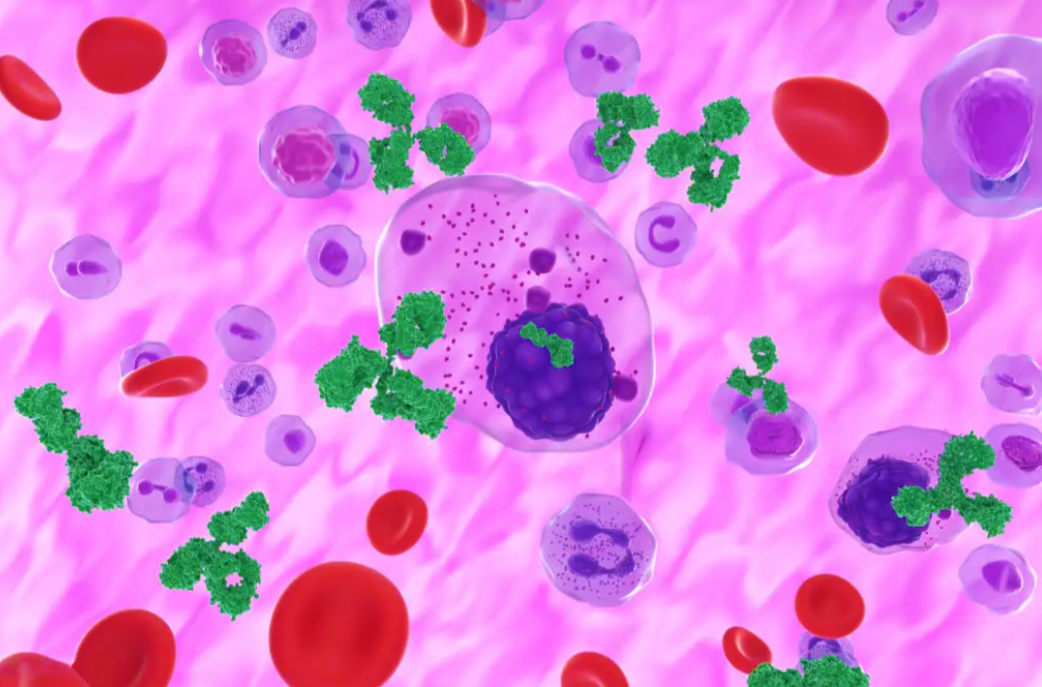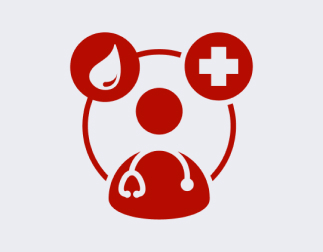Myeloma
Myeloma is cancer of the plasma cells. Plasma cells are white blood cells that produce disease- and infection-fighting antibodies in your body. Myeloma cells produce an overabundance of antibodies that do not provide protection against infection. This is different than healthy plasma cells that contribute different antibodies to your immune system to fight infection. The multiplication of myeloma cells also interferes with the normal production and function of red and white blood cells. An abnormally high amount of these dysfunctional antibodies in the bloodstream can cause kidney damage. Additionally, the myeloma cells commonly produce substances that cause bone destruction, leading to bone pain and/or fractures.
Myeloma cells are produced in the bone marrow, the soft tissue inside your bones. Sometimes myeloma cells will travel through your blood stream and collect in other bones in your body. Because myeloma frequently occurs at many sites in the bone marrow, it is often referred to as multiple myeloma.

Am I at Risk?
Signs and symptoms of myeloma include the following:
- Hypercalcemia (excessive calcium in the blood)
- Anemia (shortage or reduced function of red blood cells)
- Renal damage (kidney failure)
- Osteoporosis, bone pain, bone swelling, or fracture
- High protein levels in the blood and/or urine
- Weight loss
Myeloma occurs more frequently in the following populations:
- Males
- Over the age of 50
- Individuals with Gaucher’s disease
- First degree relatives of patients with myeloma
- African-Americans
- Obese
- Individuals exposed to radiation
- Work in petroleum-related industries
How Is Myeloma Treated?
If you have myeloma, there are many treatment options available that slow the growth of the myeloma cells and help ease bone pain, fatigue, and other symptoms associated with the disease. The type of treatment depends on your health and the type and stage of myeloma.
Treatment options include the following:
- Chemotherapy
- Immunomodulators (drugs that target specific areas of the immune system)
- Anemia drugs
- Radiation therapy
- Stem cell transplant
- Medicines to improve bone health
- Immunotherapy, such as CAR T-cell therapy
For some patients, participating in a clinical trial provides access to experimental therapies. If you are diagnosed with lymphoma, talk with your doctor about whether joining a clinical trial is right for you.
Is Myeloma Preventable?
Similar to how colon polyps can develop into colon cancer in a minority of people over many years, similar events can occur in your bone marrow. Precursor diseases to multiple myeloma, termed monoclonal gammopathy of undetermined significance (MGUS) and smoldering myeloma (SMM), are precancerous conditions that put patients at a higher risk to develop multiple myeloma. Often these findings are incidental, meaning they are found routinely or by investigating other causes. However, there are no current recommendations to screen for MM or pre-malignant blood conditions.
Unlike a diagnosis of breast cancer, colon cancer, or lung cancer, the diagnosis of multiple myeloma is based on your doctor identifying that mutated plasma cells are causing fractures, anemia, and/or kidney failure. Research is ongoing to identify patients with these precursor diseases early, before patients develop symptoms. Clinical trials are using some of the same drugs in patients with MGUS and SMM that are used in multiple myeloma. At this stage, these clinical trials are trying to prevent patients from developing symptomatic multiple myeloma.
If you are experiencing symptoms or are at risk for multiple myeloma, talk with your doctor about detection and treatment. Depending on results of your blood tests and your medical history, you may be referred to a hematologist, a doctor who specializes in blood conditions.
Where Can I Find More Information?
If you are interested in learning more about blood diseases and disorders, here are a few resources that may be helpful.


